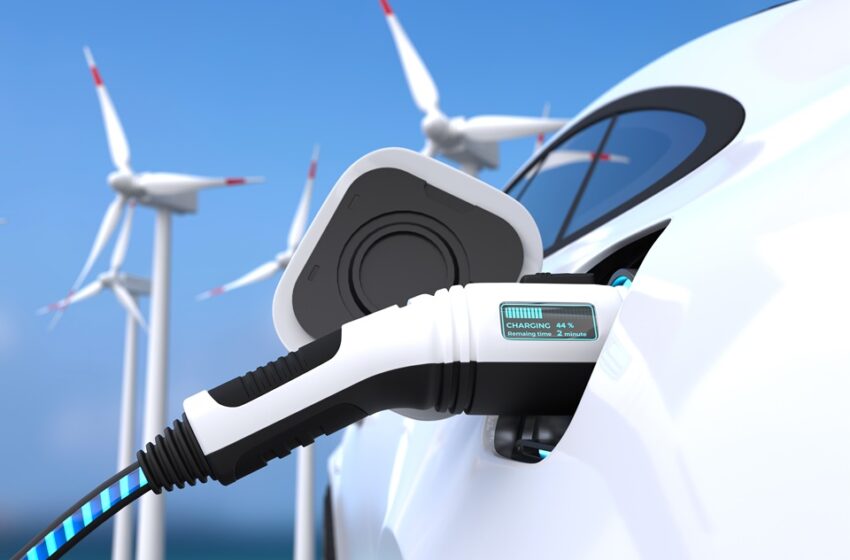Empowering The Shift: How Electric Vehicle Charging Stations Are Transforming Transportation

Key Takeaways:
- Electric vehicles are gaining popularity because of environmental issues.
- Charging stations are essential for supporting the growing electric vehicle market.
- The future of transport is moving towards eco-friendly energy options.
- Key benefits of electric vehicle charging stations include cost savings, reduced emissions, and tech advancements.
The Rise Of Electric Vehicles
The automotive industry is on the cusp of a revolutionary change as electric vehicles (EVs) gain rapid traction among consumers keen on reducing environmental impact and fuel costs. Electric cars have ceased to be futuristic; they are the present. According to growing research, EVs will surpass traditional vehicle sales in many regions within the next few decades. Countries are incentivizing buyers through subsidies, tax benefits, and decreasing the cost of EVs. These vehicles represent a tangible way to combat climate change by significantly reducing emissions compared to their gasoline-powered counterparts. All these factors synergize to make electric cars appealing to modern-day consumers, laying the foundation for widespread EV charger installation infrastructures.
The Importance Of Charging Infrastructure
Transitioning from fossil fuel to electric vehicles requires an extensive and reliable charging station network. These stations are likened to modern-day gas stations, providing the fuel needed to keep EVs running—the need for charging infrastructure soars with the rise in electric vehicle numbers. Prospective EV buyers may hesitate to switch without adequate charging points, fearing insufficient opportunities to recharge en route. By investing in charging infrastructures, cities and countries demonstrate their commitment to a sustainable future and reassure EV owners that their vehicles can travel long distances without concern. This commitment to infrastructure is paramount in supporting a seamless transition to electric vehicle use.
Benefits Of Charging Stations
Economic Impact
Electric vehicle charging stations are not just a boon for drivers—they’re an economic engine for local communities. Installation and maintenance of these stations create jobs across various sectors, from construction to technology. Additionally, they promote economic revitalization in areas where they are installed. Businesses near charging stations often see increased traffic from customers waiting to refuel their vehicles, providing more opportunities for local economic growth. This increased patronage can lead to thriving businesses and a healthier economy and community.
Environmental Benefits
The presence of efficient charging stations further highlights the environmental advantages of electric vehicles. These stations encourage broader use of electric cars by reducing range anxiety, thereby decreasing reliance on fossil fuels. Major urban centers, where the effect of air pollution is keenly felt, stand to benefit significantly from the reduced emissions facilitated by a transition to EVs. Cleaner air, reduced greenhouse gas emissions, and quieter roads contribute to a healthier environment and improved quality of life for city dwellers.
Challenges In Establishing Charging Networks
Despite their clear benefits, developing an extensive network of EV charging stations is not without challenges. The substantial financial investment required to build infrastructures supporting widespread electric vehicle use is significant. Governments and private sectors are grappling with the costs versus long-term benefits. Technological challenges like differing charging standards and power capacities further complicate network expansion efforts. Addressing the unequal distribution of charging stations across geographical areas poses another significant hurdle. Ensuring rural areas are as accommodated as urban centers is vital to achieving comprehensive EV adoption.
Technological Innovations In Charging
Recent technological developments are making EV charging faster and more accessible than ever. Innovations such as wireless charging, where vehicles recharge without physically connecting to a unit, and ultra-fast charging stations, which can replenish an EV battery in mere minutes, are game-changers. These technological advancements promise to enhance user experiences and expand the feasibility of electric vehicles in everyday life. As these technologies become mainstream, they stand to reduce barriers significantly hindering the current adoption of EVs.
Global Examples Of Successful Implementation
Across the globe, some countries are showcasing the success of comprehensive EV charging networks. Norway, a leader in EV adoption, demonstrates the potential for widespread use of electric vehicles powered by their robust charging infrastructure. Not only has this contributed to a significant reduction in national emissions, but it has also led to Norway becoming a model for other nations. Similarly, with its exemplary charging station network, the Netherlands shows the positive outcomes of prioritizing renewable energy in transportation. Their initiatives illustrate that strategic planning and implementation of charging infrastructures can yield significant environmental and economic returns.
The Future Of Transportation With Electric Vehicles
The trajectory of electric vehicles suggests that they will play a crucial role in the future of transportation. With continued growth in EV adoption rates, further integration of advanced technologies is anticipated to enhance vehicle performance and energy efficiency. The focus on sustainable transport solutions will drive innovation, policy development, and infrastructure improvements that make EVs indispensable to modern mobility. The evolution will likely include smart cities outfitted with integrated charging solutions catering to users and vehicles.
Steps For Adopting An Electric Vehicle Lifestyle
- Examine local charging station availability to determine the best locations for regular top-ups.
- Consider practical aspects of EV ownership, such as usable range and charging time, to choose a model that fits personal needs.
- Stay informed about technological developments in the EV sector to maximize both cost-effectiveness and vehicle performance.
- Participate in local initiatives or online forums advocating for expanded and equitable EV charging infrastructure.